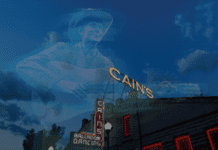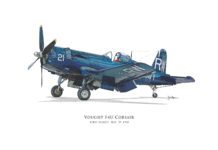One of the many noteworthy things about Lone Chimney, the eighth disc from the trailblazing Oklahoma band the Red Dirt Rangers, is the presence of four Grammy-nominated guest artists.
I’m not one of them. However, I am on the disc.
Although I’ve played in a few garage-rock bands over the years, I’m not really a musician. However, I have some good pals who are, and, occasionally, they let me come in and pretend to be one in the studio. It’s an experience I liken to being called out of the stands at Arlington Stadium and asked to play first base for the Texas Rangers for an inning or two. In other words, it’s thrilling, intimidating and not a little dreamlike.
It started around 2002, when my longtime friend, Steve Ripley, the man behind the multiplatinum-selling group the Tractors (and one of the Grammy nominees on Lone Chimney) asked if I’d like to help him write a nostalgic song for his upcoming solo album. Although my contributions to the finished tune, “Gone Away,” are minimal, Ripley was kind enough to give me a co-writer credit. Knowing I owned a 1965 Vox Jaguar organ, he also asked me to bring it into the studio and play on the “Gone Away” track. He was running Tulsa’s fabled Church Studio at the time, and doing a Church session under Ripley’s tutelage ranks right up there in my book of life’s great moments. (I was doubly gratified last year when country greats Bill Anderson and the Oak Ridge Boys released a version of “Gone Away,” adding a couple of country music-specific verses but retaining the musical bed from Ripley’s release – which means my wheezy little organ can be heard behind Whispering Bill and the Oaks.)
Not long afterwards, I got another call from Ripley, asking if I wanted to drop by and play on a track for the new Red Dirt Rangers disc. The Rangers – who had also been chums of mine for a long time – were fans of what has been dubbed “the cheesy organ sound,” exemplified by garage-band classics like Question Mark & the Mysterians’ “96 Tears” and the Sir Douglas Quintet’s “She’s About A Mover” and “Mendocino” (the latter two played by my keyboard hero Augie Meyers). They knew I loved that sound, too, and that my limited skills included the ability to play the Vox in a similar style. So I delightedly shot over to the Church Studio and cheesed up a nice number called “We Don’t Have to Say Goodbye,” which ended up on the Rangers’ 2002 release, Starin’ Down the Sun.
At that time, Ripley and the Rangers had begun what would turn out to be a long and fruitful musical partnership,
“The first time we made contact with Ripley, we were getting ready to record what became (the band’s third album) Oklahoma Territory,” recalls Red Dirt Rangers guitarist-vocalist Brad Piccolo. “We did some pre-production plans, but then (the hit single) ‘Baby Likes to Rock It’ took off, and the Tractors really started to hit it big. So Steve had to concentrate on his own career, and we understood that and went with Lloyd Maines as our producer, For the next one, Rangers Command, it was Lloyd and (Asleep at the Wheel drummer) David Sanger. After that, it’s been all Ripley.”
Lone Chimney features Ripley as performer as well as producer and engineer, along with Maines, a Grammy winner for his production of the Dixie Chicks’ album Home, on steel guitar and dobro. The other two Grammy-related performers are Fats Kaplan (fiddle, steel), a member of Jack White’s band as well as a Tractor, and recently nominated Oklahoma boy John Fullbright (Hammond B3 organ, banjo, guitar, dulcimer, piano, harmonica).
Other guests include vocalist Monica Taylor, horn players Steve Ham and Gary Linde and musicians Randy Crouch and Don Morris, who play regularly with the Rangers: Piccolo, mandolinist-vocalist John Cooper and lead guitarist-vocalist Ben Han.
It’s the eighth disc from the band, which has done more than any act to popularize and perpetuate the Stillwater-born, earthy, lyric-oriented amalgam known as Red Dirt music. This time around, the guys decided to approach the studio process differently.
“Basically, on all the discs we did before, we’d write the songs, go in and do the basic tracks, and then we’d bring the band back in and have any special guests play with us one at a time, and that was it,” says Cooper. “In a way, it was just like doing a gig. But when we got together with Ripley for this one, we said, ‘Let’s do something different. Let’s make a real studio record.’ So we play all the drum parts. Ben plays bass and electric guitar, I play some guitar, octave mandolin, acoustic mandolin. Pic plays everything from student bells to sitar. We all play percussion, and Ripley plays different instruments on it, too.”
“We’ve been working on it about two years,” adds Piccolo. “The record was so large in scope that it just took time to get all the people we wanted on it. Also, it took time because of our schedules, and some of it was just the slow pace of living in the country, which transferred to making this record.”
Country living is also reflected in the disc’s title, which refers to the rural area where Cooper and Piccolo and their families reside. (Han is a Tulsan, but, as Cooper points out, “he spends a lot of time with us in Lone Chimney.”) Ripley, who moved several years ago to his family’s former farm in rural Pawnee County and set up a recording studio in a former outbuilding, is, by country standards, a neighbor.
The title song, “Lone Chimney,” was written by Cooper and Piccolo and veteran Red Dirt singer-songwriter Chuck Dunlap. Other songwriting collaborators include Stoney LaRue, Morris, Scott Hutchison and the late Red Dirt godfather Bob Childers, who Cooper says is “all over the record.”
“We’re calling it Lone Chimney because a lot of the songs were written out here, and this is where we live,” he adds. “We feel like this is a representation of the lives we’ve lived for the past few years.”
I’m happy to have lived a little bit of those lives with them and honored to have been asked into the studio to contribute to Lone Chimney. My Vox Jaguar stylings are heard to best advantage, if that’s the correct word under the circumstances, on a peppy, horn-accented number called “Main Street U.S.A.,” but I may show up on one or two more cuts as well.
“You’re probably on ‘Heaven or Hell,’” Piccolo tells me. “That’s our ‘kitchen-sink’ song, where we threw a little bit of everything in. In fact, there’s actually a kitchen sink on it. I was driving by a construction zone when I saw this big, old metal kitchen sink they’d thrown out. I took it, and we hung it up in the studio and beat on it.” He laughs. “It had a pretty good tone, actually.”
So listen for the actual sound of a kitchen sink in “Heaven or Hell.” And if you also hear something that sounds like a cheesy organ, that’ll be me.

























